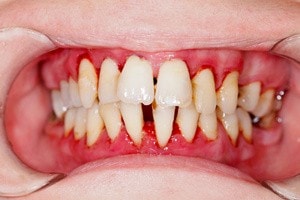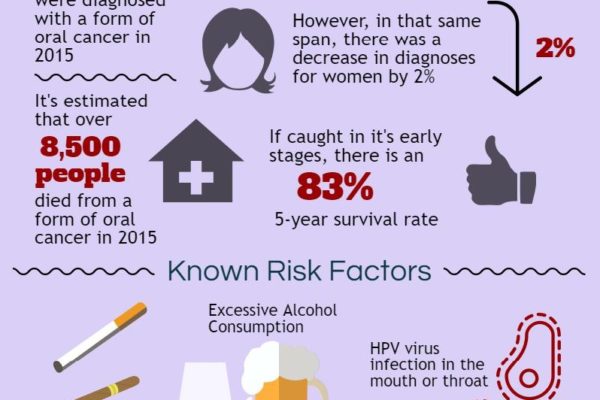 If given the choice between sitting in gridlock traffic and flossing your teeth, what would you choose? According to a nationwide study, more than a third of Americans would rather do an unpleasant activity instead of flossing each day. Some of these unpleasant activities include washing a sink full of dirty dishes, waiting in a long check-out line, cleaning a toilet, or sitting in bumper-to-bumper traffic.
If given the choice between sitting in gridlock traffic and flossing your teeth, what would you choose? According to a nationwide study, more than a third of Americans would rather do an unpleasant activity instead of flossing each day. Some of these unpleasant activities include washing a sink full of dirty dishes, waiting in a long check-out line, cleaning a toilet, or sitting in bumper-to-bumper traffic.
It’s no secret that flossing isn’t the most fun daily chore, but it is an absolutely critical part of your oral hygiene routine. Most notably, flossing is important for your periodontal health. Although most of us associate great oral health with a straight white smile, the teeth are just one component of your dental health.
Having healthy gums is another important factor for keeping your dental health in tip-top shape. Unfortunately, many patients don’t have a proper routine to keep healthy, disease-free gums. According to the Centers for Disease Control and Prevention, 47.2% of adults in the U.S have periodontal disease. This oral health problem is even more alarming as adults get older with 70.1% of adults aged 65 and older suffering from periodontal disease.
With this month being National Gum Care Month, there is no better time to get your periodontal health back on track. Dr. Keith Cooper and his staff strongly encourage patients to educate themselves on gum health and the best practices for keeping their gums healthy and free from infections.
Gum Health Basics
The gums serve an important purpose for your oral health. Not only do the gums help to hold your teeth in their correct position, but they also act as a sealant around them, which protects the delicate inner areas of the tooth. The mouth contains different types of gingival tissue:
Attached Tissue: The attached tissue is probably what you first picture when you think of the gums. It is the pink tissue that is attached to the supportive underlying bone. This tissue hugs the teeth and is securely attached when the gums are healthy.
Marginal Gingiva: This tissue is soft and surrounds the tooth but is not directly attached to the surface. It overlaps the neck as well as the base of the crown of the tooth.
Interdental Gingiva: As the name suggests, the interdental gingiva is the tissue between the teeth. This tissue can either be pyramidal or col shaped, depending on the area of the mouth.
Developing Gum Disease
The gingival tissue serves an important purpose for our teeth and any problems with our gum health can jeopardize our overall dental health. Gum disease is a major concern that many patients face. The process of developing gum disease goes as follows:
The earliest stage of gum disease is known as gingivitis. At some point, most of us will have gingivitis, which results in red, swollen gums. This occurs because bacteria accumulates and releases a toxin that irritates the gums. Patients with gingivitis will also notice bad breath and bleeding gums. Gingivitis can typically be treated by simply paying special attention to oral hygiene and visiting the dentist for regular cleanings.
If gingivitis isn’t treated in a timely manner, patients will develop periodontitis, which is the more serious form of gum disease. Periodontitis is a serious problem because it damages the supportive tissue and underlying jawbone. Moderate periodontitis can be treated by keeping a strict oral hygiene routine and gum disease treatment.
If patients continue to leave this issue untreated, they will develop severe periodontitis. At this point, the connective tissue and bone are destroyed, which results in teeth that shift around and feel loose. With aggressive treatment, patients can save their teeth, but in some instances, patients will need to have their teeth extracted.
How Can I Keep My Gums Healthy?
With the dangers of gum disease in mind, it’s obvious why gum health is so important. Fortunately, avoiding gum disease is quite simple with preventative measures. Some of the best ways to keep your gums healthy and free from infection include:
Regular Oral Health Routine: Although this may seem like an obvious step to keeping healthy gums, many patients overlook the importance of having a consistent oral hygiene routine. An oral hygiene routine should include brushing twice a day and flossing once per day. Doing this will remove bacteria that can cause the gums to become inflamed in the first place.
Avoid Tobacco Products: Did you know that tobacco products aren’t just detrimental to your bodily health, but are also extremely harmful to your oral health? Tobacco is harmful to your oral health because it inhibits your ability to fight off infections of the gums.
Chew Sugar-Free Gum: There is truth to the benefits of chewing sugar-free gum for your oral health. Chewing gum will stimulate saliva production, which can help wash away bacteria that can cause gum disease.
Adjust Your Diet: Keeping a well-balanced diet and limiting your sugar intake will benefit your overall health as well as your oral health. Bacteria that cause gum disease feed upon sugar and can increase your risk for periodontitis. Eating a balanced diet will also benefit your immune system, which will help you fight off infections in the mouth.
Visit The Dentist: If any issues with your gum health come up, your dentist will be able to spot them right away. It’s important to go to the dentist twice a year so your dentist can perform routine cleanings and look out for any possible issues involving your periodontal health.
Contact Our Office in San Jose
Do you have gum health concerns? If so, don’t hesitate to contact our office. We offer a range of dental services to best address your specific oral health concerns. Dr. Keith Cooper and his talented staff at Contemporary Dental Arts look forward to helping you achieve a healthy, beautiful smile. Whether you need dental implant treatment or root canal therapy, we’re here to help.To find out more about the services we offer, contact our office today at 408-740-5317.


